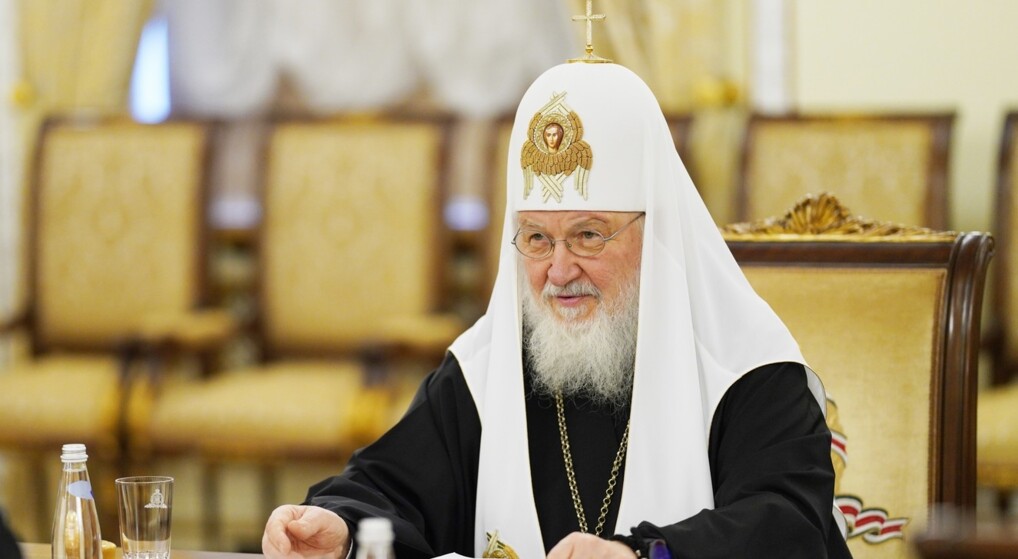I dagens afsnit er vi i Tyrsted kirke i Aarhus Stift. Her kan du høre Troels Laursens tanker om glæden med afsæt i Lise Malinovsky´s kunstværk.

Photo of His Holiness Patriarch Kirill. Credit: Moscow Patriarchate/WCC.
On Thursday 4 May, the Council on International Relations of the Evangelical Lutheran Church in Denmark sent an open letter to His Holiness Patriarch Kirill, head of the Russian Orthodox Church.
The letter contains three calls to the patriarch: First, a call to Kirill to distance himself from the Russian war of aggression in Ukraine, which is a war between two Orthodox nations and where Christian brothers and sisters are murdering each other.
Secondly, a call to Kirill not to contribute to the legitimization of the war in ethical and theological terms as a 'purification' of Ukraine. Misinformation, conspiracy theories and ideas of Russian exceptionalism are mixed in the Russian Orthodox Church's legitimization of the war, which is both ethically and theologically problematic.
Thirdly, a call to the Russian Orthodox Church to position itself in such a way that, after the military conflict, it can contribute to reconstruction and reconciliation between the countries, which the current statements and actions make impossible.
Read the letter in Danish HERE
Read the letter in English HERE
Background
The Russian Orthodox Church is the largest of the Orthodox churches. After the fall of the Soviet Empire in 1991 and the dissolution of the state in a number of autonomous states, a completely new climate arose for the Orthodox churches.
The newfound freedom to publicly profess to be a Christian, and to participate in church services and pilgrimages led to a great increase in the population in support of the church. The rebuilding of orthodox churches and a large number of monasteries, after the state returned ownership of the buildings to the church, provided the basis for great growth, and at the same time the church became closely connected to the new Russian state.
Russia is the most populous state in the former Soviet Empire with 144 million inhabitants, and the Russian Orthodox Church increased its membership of the population from 37% in 1991 to 71% in 2005. In 2000, the Orthodox Church in Russia published its doctrinal document, 'Basis of the Social Concept', which describes in detail how the church relates to the nation, the state, ethics and law, politics, property rights, war, punishment, family life, and public morality .
The document can be seen as a testimony to the new situation in which the Orthodox Church finds itself, and to the church's growing importance in society theologically as well as structurally and ideologically as a superstructure to the Russian state.
In 2015, 73% of Russians responded that they believe there is a conflict between Western values and the traditional Russian values represented by the Russian Orthodox Church.
For more information:
Contact the secretariat: ca@interchurch.dk / telephone: +45 29911324.
Brug for en at tale med?
Chat med en præst her og få en fortrolig og anonym samtale med en præst, om lige præcis det, du går og tumler med.
Start chat